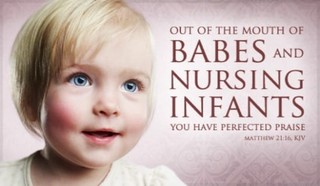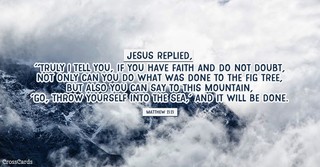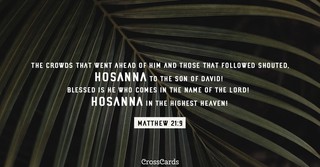
- Recent Translations
- All Translations
Mattityahu 21:15 Meaning and Commentary
And when the chief priests and Scribes
The inveterate enemies of Christ; who upon hearing the shouts of the people at Christ's entrance into the city, and passage through it to the temple; and understanding that it was Jesus of Nazareth that was come thither, they came also to awe the people, and pick up what they could against him: who, when they
saw the wonderful things that he did;
as the overturning the tables of the money changers, and the seats of those that sold doves, without any opposition, when these traders were so many, and in great power, and he a single person, and unarmed; and that the blind received their sight, and the lame were cured,
and the children crying in the temple;
who came from the various parts of the city, with their parents, to see the sight; who, when the multitude had done, they began the same ditty:
and saying, Hosanna to the son of David;
proclaiming Jesus to be the Messiah, and ascribing praise and glory to him, and wishing him all happiness and prosperity: the form they had taken up from the people, and might be encouraged by their parents; and which they pronounced without fear of the high priests, and Scribes, being disposed, directed, and overruled hereunto by the providence of God. It was indeed no unusual thing for children to sing the "Hosanna" at the feast of tabernacles; for, according to the Jewish canons F11,
``a child that knew how to shake, was obliged to carry the "Lulab",''or bundle of myrtle, and willow boughs, and palm tree branches, at the shaking of which "Hosanna" was said: but that they should cry "Hosanna" to Jesus, as David's son was very extraordinary, and what the high priests, and Scribes, took notice of with great resentment:
they were sore displeased;
at the children, that so said, at their parents that suffered them, and especially at Christ, who did not forbid them. The Persic version renders it, "it displeased the priests"; the Arabic reads, "they murmured"; and the Ethiopic has it, "it was not pleasant to them".
F11 T. Bab. Succa, fol. 42. 1. Erachin, fol. 2. 2. Maimon. Hilch. Lulab, c. 7. sect. 19.

